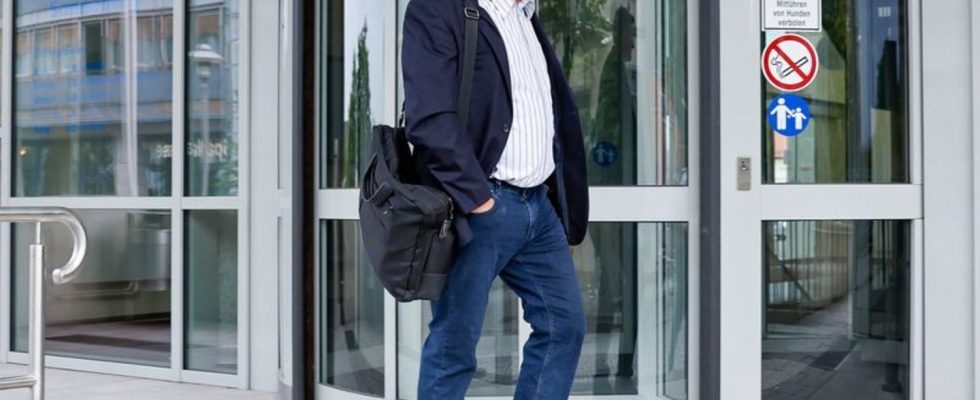parties
First AfD district administrator takes office in Thuringia
The new district administrator of Sonneberg, Robert Stuhlmann (AfD), enters the district office at 7.44 a.m. to take office. photo
© Daniel Löb/dpa
The AfD is gaining more and more popularity. In Thuringia, the first district administrator appointed by the party in Germany takes up his work. Saxony-Anhalt gets its first AfD mayor.
According to a statement, Stuhlmann said he would like “the deep rifts that have emerged from the election campaign and the associated media reporting to be quickly overcome”. He stressed that the result was acceptable. “I strongly condemn undemocratic and completely misplaced calls for a boycott at the expense of our domestic economy and our hospitality industry.”
He was elected in a runoff on June 25, which caused some outrage among other parties. The Thuringian AfD is classified and observed by the State Office for the Protection of the Constitution as a secured right-wing extremist. With almost 57,000 inhabitants, the district of Sonneberg is one of the smallest in Germany.
Classified as a suspected case by the Office for the Protection of the Constitution
In the neighboring state of Saxony-Anhalt, an AfD candidate was also elected to a municipal office for the first time on Sunday: In the small town of Raguhn-Jeßnitz, Hannes Loth won the election for full-time mayor. The 42-year-old is the first AfD mayor in Saxony-Anhalt. The spokesman for the German Association of Towns and Municipalities is not aware of any other full-time mayors nationwide, but his organization does not keep any statistics on this.
The Office for the Protection of the Constitution classifies the party nationwide as a suspected case in the area of right-wing extremism. In Germany-wide surveys, the AfD ranks at around 20 percent.
SPD chairman Lars Klingbeil called on the democratic parties to clearly differentiate themselves from the AfD down to the municipal level. In the case of the CDU, he sees that its chairman Friedrich Merz and the other responsible parties are trying and are serious about “keeping up the firewall against the right,” said Klingbeil in Berlin. Nevertheless, he repeatedly experiences advances from the Union, “that there they also begin to relativize the relationship with the AfD, that it is normalized”. This is at the municipal level, but also in other areas. He could only appeal to all democratic parties not to copy the AfD and to always clearly comply with the firewall.
The AfD benefits from uncertainty, disputes and fear, said Klingbeil. “The AfD is also a party that spreads a bad mood and ensures that the mood is bad in this country,” he explained, similar to Chancellor Olaf Scholz (SPD) on several occasions. At the same time, she has no answers to the current challenges.

